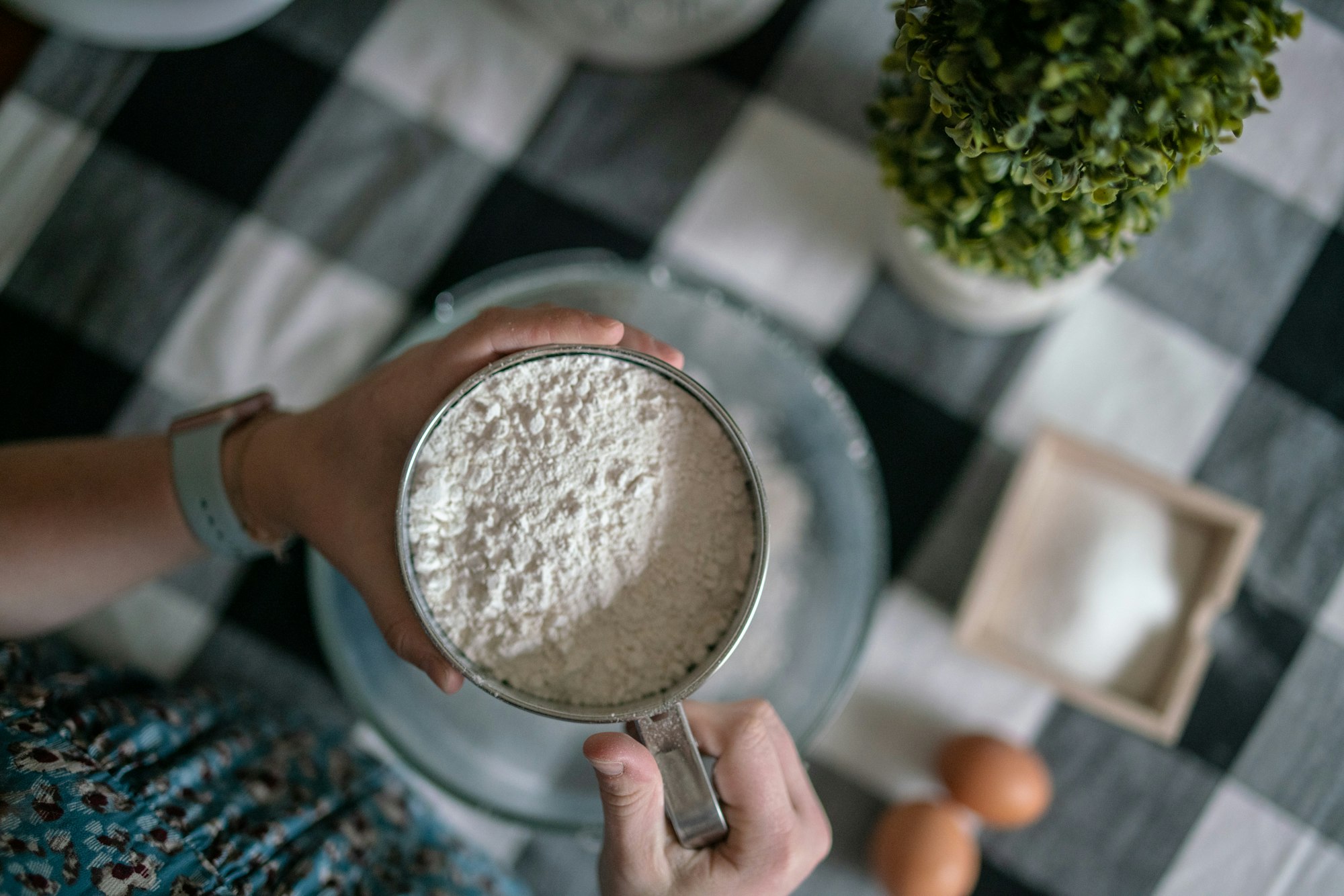Exercise and digestive symptoms
A perfect healthy routine consists of good nutrition, plenty of exercise, and generally good life balance. And all would be easy and well, if you didn’t get interrupted by uncomfortable gut symptoms like bloating, gas, diarrhea, and more. These symptoms can really impact your routine and, before you know it, throw off the balance altogether.
It goes like this: you wake up, you put on your gym outfit you’ve laid out the night before, and you’re making your super healthy green protein smoothie. Full of spinach, banana, and yogurt… some protein powder, don’t forget. You drink that up and go on your merry way to your local metal-lifting, rubber-pushing sweat factory.
And here it comes, the bloat. Half way through your workout, you get to your third trimester of pregnancy and gain an extra burden to your body weight routine.
As if maintaining a good morning routine wasn’t hard enough, it’s even harder when you feel nothing short of a helium balloon. The fact is, high levels of exercise can affect the function and integrity of our gastrointestinal system. It can actually lead to more digestive symptoms, too, including pain, diarrhea, cramps, and - of course - some urgent restroom dashing.

What causes gut symptoms during a workout?
These symptoms can be quite frustrating to deal with during a workout session. You cannot possibly give your 100% to any workout (and don’t even mention HiiT).
There are many causes for digestive symptoms during a workout, including hydration, heat, general exertion, and of course, your nutrition. A history of Gastroesophageal Reflux Disease (GERD) or functional dyspepsia can also make you more prone to other digestive symptoms, like burping or reflux, when exercising.
Here’s the thing: that smoothie you so lovingly blended, though healthy (and SO GOOD!), might have something to with the sudden balloon-like feeling. It can be another reason your symptoms get even more exacerbated, as it contains foods high in FODMAPs.
What are FODMAPs?
FODMAPs, which stands for Fermentable Oligosaccharides, Disaccharides, Monosaccharides, and Polyols, are a type of carbohydrate commonly found in many foods. They are known to be difficult for some people to digest, especially those with digestive disorders. When consumed in high amounts, FODMAPs can cause gas, bloating, diarrhea, constipation, and other digestive issues.
This is why people with FODMAP intolerance, or digestive disorders, are often advised to go on a low FODMAP diet, which involves limiting their intake of high-FODMAP foods.
Low FODMAP diet and exercise
Some foods contain more FODMAPs than others, and individuals may have varying tolerances to FODMAPs. Thus, it's important to work with a healthcare professional or registered dietitian to determine which foods are safe to consume and in what amounts.
While limiting the intake of high-FODMAP foods is a recommended strategy to manage symptoms, it also comes with extremely limited nutrient intake. It's important to remember that high-FODMAP foods, including a long list of fruits and vegetables, contain valuable nutrients your body requires on a daily basis, let alone during periods of high exertion.
Besides, if you are exercising regularly, you might also consume protein powder to help with your routine.

Protein powders and FODMAPs
Some protein powders may be high in FODMAPs, depending on the ingredients used. For example, protein powders that contain whey protein isolate or concentrate may be high in lactose (the Di-saccharide, or D in FODMAP).
However, there are also protein powders made with low-FODMAP ingredients. It's important to check the ingredients list and choose a protein powder that is low in FODMAPs if you have digestive issues.
Things to consider when buying protein powder
Plant-based protein powder
When it comes to protein powders, plant-based options such as soy and pea are becoming increasingly popular. However, these protein sources can be particularly challenging to purify, which can be problematic for people who have digestive issues.
In addition, these plant-based proteins often contain some FODMAPs, including GOS and fructan.
Prebiotic protein powder
It's also important to avoid protein powders/supplements that have the word "prebiotic" on the packaging, as prebiotics are synonymous with FODMAPs and may cause symptoms for some people. Make sure to check the ingredient list for inulin, chicory root, Jerusalem artichoke - sources of fructan, or oligosaccharides (the 'O' in FODMAP).
Lactose content
When purchasing protein powder, look out for lactose on whey protein powder products. Whey protein concentrate is lower in protein and higher in carbohydrates like lactose. Whey protein isolate, however, undergoes extensive processing so that the final product is higher in protein.
Ingredients high in polyols
Lastly, check for polyols on the ingredients list - ingredients such as xylitol, sorbitol and mannitol are used as low-calorie sweeteners. The doses of polyols used by food manufacturers can be well above a ‘safe’ dose as defined by Monash University, and can be problematic for people sensitive to sugar alcohols.
It's important to carefully choose your protein powder and check the ingredients list. If you have digestive issues or are sensitive to FODMAPs, you should look for protein powders made with low-FODMAP ingredients.
How to manage gut symptoms and exercise
There are, however, other strategies that can help manage digestive symptoms related to exercise. It's important to take a holistic approach to managing digestive health and work with a professional to develop a personalized plan that meets individual needs and preferences.
This is where FODZYME comes in - a natural supplement that helps to break down FODMAPs, which are often responsible for bloating and other digestive issues.
Can enzymes help with digestive symptoms?
Even if you consume high-FODMAP foods before your workout, adding FODZYME enzymes to your food can reduce the FODMAP intake support digestion, allowing you to focus on your workout without worrying about bloating.
FODZYME contains a blend of natural enzymes that help to break down FODMAPs fructan, galacto-oligosaccharides, and lactose (in foods like spinach, bananas, dairy, and many other foods in great smoothie recipes). It makes them easier for your body to digest, reducing gas, as proven in a peer-reviewed in-vitro experiment. This allowsyou to focus on your workout without worrying about the unpleasant symptoms.
Enzyme supplements like FODZYME help to promote a healthy gut microbiome, which can lead to better digestion, improved nutrient absorption, and a stronger immune system. It can help your body is able to digest food more efficiently, so you can feel more energized and focused during your workout.
It can help you digest your nutrient-packed smoothie easier, enable your body to absorb those good things, and unlock the full potential of a powerful workout unhindered by gut distress.
If you're looking to improve your workout routine and reduce FODMAP-induced symptoms, consider adding FODZYME to your supplement regimen. Not only will it help you feel better during your workouts, but it can also support your overall digestion and gut health.
